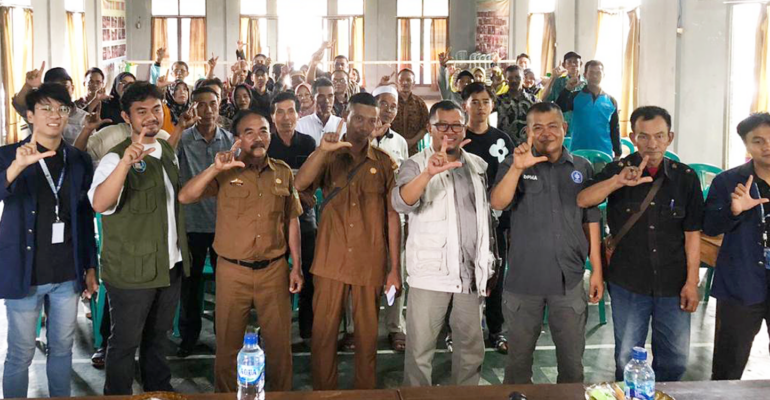DPMA IPB University and KKNT Innovation Students Hold Technical Guidance on Calina Papaya Cultivation in East Lampung District

The Directorate of Agromaritime Community Development (DPMA) of IPB University in collaboration with students of the Thematic Real Work Lecture (KKNT) Innovation in East Lampung Regency held a technical guidance (bimtek) on calina papaya cultivation.
This program aims to improve the knowledge and skills of local farmers in East Lampung, especially IPB University partner farmers, in cultivating calina papaya. This activity took place in Taman Endah Village, Purbolinggo District, East Lampung Regency, Lampung.
This technical guidance targets IPB University partner farmers and local farmers in East Lampung and surrounding areas who are enthusiastic about learning the latest techniques in cultivating calina papaya as well as preventing and handling pests and diseases that often attack the plant. Through this technical guidance, it is hoped that farmers can improve the productivity and quality of their agricultural products.
This technical guidance activity was opened by Koswara SE, representing the Director of PMA IPB University, who conveyed the importance of applying the right technology and cultivation techniques in increasing agricultural yields. “We hope that through this technical guidance, farmers can utilize the knowledge provided to increase the productivity of calina papaya and reduce losses due to pests and diseases,” he said.
IPB University expert, Sarwono, SP as a resource person explained various cultivation techniques ranging from the selection of superior seeds, planting techniques, plant maintenance, to prevention and handling strategies for pests and diseases that often attack calina papaya.
In the discussion session, farmers were invited to directly consult about problems on their local farms. Joko, one of the farmers who participated in the technical guidance, expressed his gratitude for the knowledge provided.
“This technical guidance really helps us understand how to cultivate papaya properly. Hopefully, with this new knowledge, we can increase the yield and quality of papaya,” he said.
In addition to providing technical knowledge, this activity is also a place for KKNT Innovation IPB University students to apply the knowledge they have learned in college and interact directly with the community.
“This experience is very valuable for us. We can directly know the problems faced by farmers and the solutions,” said Farhan, a student member of KKNT Innovation.
With this technical guidance, it is expected that IPB University partner farmers and local farmers in East Lampung can better understand and apply effective calina papaya cultivation techniques and be able to overcome the challenges of pests and diseases. This effort is expected to improve the welfare of farmers and encourage sustainable agricultural development in East Lampung and surrounding areas. (IAAS/SNI)



















